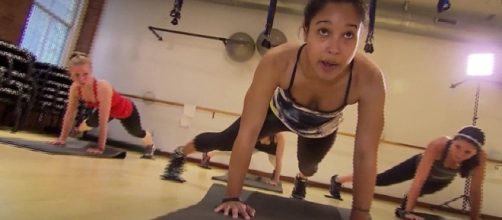Exercise, particularly high-intensity interval training, encourages our cells to make more proteins to feed their energy-producing machinery. This arrests the aging process, according to a study published March 27 in the journal “Cell Metabolism.” The study enrolled 30 men and women from two age groups: 15 volunteers were 18 to 30 years old and 15 volunteers were 40 to 55 years old.
How exercises prevent aging?
Philip John at the Mayo Clinic suspected that the benefits of exercises extend down to the cellular level, but knew little about which exercises rebuild organelles.
He took biopsies from the volunteers’ thigh muscles and compared the molecules. Researcher also assessed the amount of lean Muscle Mass and insulin sensitivity. He found that high-intensity interval training yielded the benefits at the cellular level. John says exercises encourage the cells to make more RNA and mitochondrial proteins. Mitochondria are commonly referred to as the powerhouses of the cell. They produce adenosine triphosphate, a molecule that transports chemical energy within cells. As we age, the capacity of mitochondria to generate energy decreases. The Mayo Clinic researchers say, "Vigorous exercise remains the most effective way to bolster health."
The Study's senior author is Dr.
Sreekumaran Nair at the University of Glasgow. This research team is led by Matthew Robinson at the University of Oregon. Experts say exercises are good for body cells. People should pay attention to their aerobic fitness.The findings show that an increase in mitochondrial function is due to muscle proteins. John says the focus of this study is not on developing recommendations, but rather on understanding how exercise helps at the molecular level.
The future of this study
Researchers aim to develop targeted therapies for adults and children. The results reveal that exercises improve cardiorespiratory health, muscle mass, and blood sugar level. Experts say high-intensity exercises reverse the effects of aging on the cells. The research highlights that exercises enhance the cellular machinery that is responsible for producing new proteins and genes. In future studies, experts will investigate how exercise benefits different tissues throughout the body.

